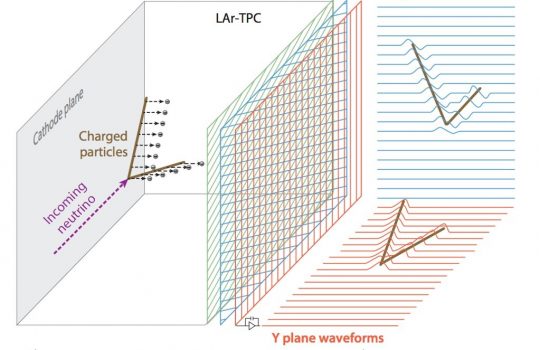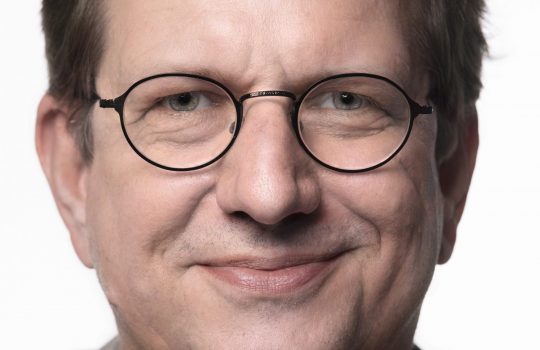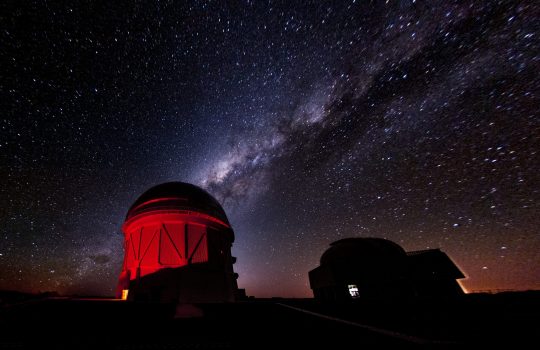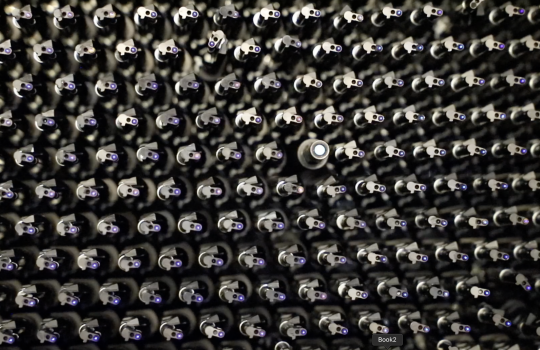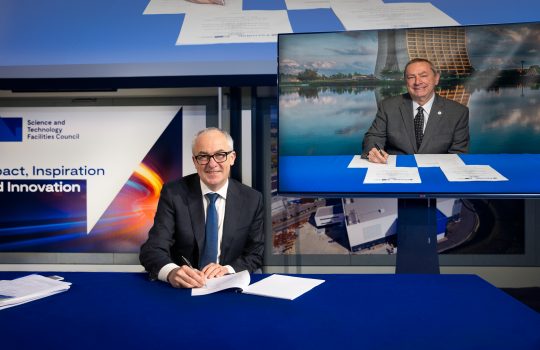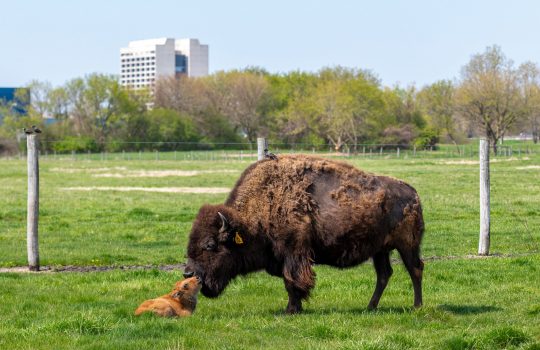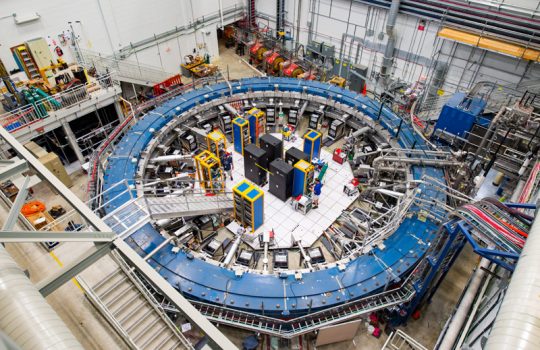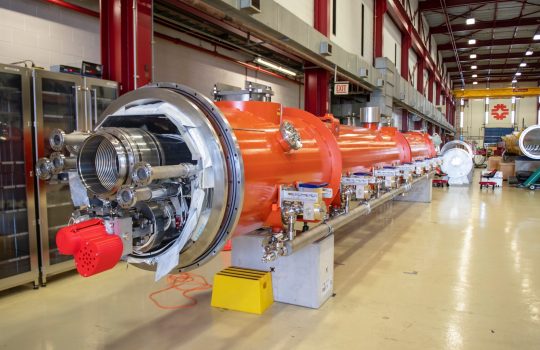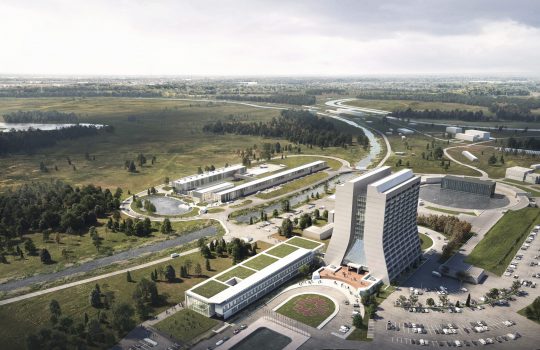Physicists achieve significant improvement in spotting accelerator-produced neutrinos in a cosmic haystack
Ground-breaking image reconstruction and analysis algorithms developed for surface-based MicroBooNE detector filter out cosmic ray tracks to pinpoint elusive neutrino interactions with unprecedented clarity.
Joint appointment at JGU and Fermilab: Alfons Weber is JGU’s new W3 Professor of Experimental Particle Physics
Alfons Weber has achieved full professorship teaching Experimental Particle Physics at Johannes Gutenberg University Mainz. His joint appointment at JGU and Fermilab represents the expansion of PRISMA+ neutrino physics research program.
Dark Energy Survey releases most precise look at the universe’s evolution
The Dark Energy Survey collaboration has created the largest ever maps of the distribution and shapes of galaxies, tracing both ordinary and dark matter in the universe out to a distance of over 7 billion light years. The analysis, which includes the first three years of data from the survey, is consistent with predictions from the current best model of the universe, the standard cosmological model. Nevertheless, there remain hints from DES and other experiments that matter in the current universe is a few percent less clumpy than predicted.
Dark Energy Spectroscopic Instrument starts 5-year survey
- Berkeley Lab
- cosmology
- dark energy
- Dark Energy Spectroscopic Instrument
- DESI
- Kitt Peak National Observatory
- robotics
DESI will capture and study the light from tens of millions of galaxies and other distant objects to better understand our universe and the properties of dark energy. The formal start of DESI’s five-year survey follows a four-month trial run of its custom instrumentation that captured 4-million spectra of galaxies — more than the combined output of all previous spectroscopic surveys. Fermilab has contributed multiple components to the international collaboration led by Berkeley Lab.
UK to play vital role in creating the world’s most powerful neutrino beam
The Science and Technology Facilities Council, or STFC, has signed an agreement with Fermi National Accelerator Laboratory, in the United States, designating how the two organizations will collaborate to build one of the world’s most powerful linear accelerators.
Fermilab welcomes first baby bison of the year
The first baby bison of the season was born in the morning on April 26, 2021.
First results from Fermilab’s Muon g-2 experiment strengthen evidence of new physics
The first results from the Muon g-2 experiment hosted at Fermi National Accelerator Laboratory show fundamental particles called muons behaving in a way not predicted by the Standard Model of particle physics. These results confirm an earlier experiment of the same name performed at Brookhaven National Laboratory. Combined, the two results show strong evidence that our best theoretical model of the subatomic world is incomplete. One potential explanation would be the existence of undiscovered particles or forces.
Fermilab delivers final superconducting particle accelerator component for world’s most powerful X-ray laser
- Argonne National Laboratory
- Berkeley Lab
- Cornell University
- cryomodule
- DESY
- Jefferson Lab
- LCLS-II
- people
- SLAC National Accelerator Laboratory
- superconducting technology
Fermilab gives a sendoff to the final superconducting component for the LCLS-II particle accelerator at SLAC National Accelerator Laboratory in California. LCLS-II will be the world’s brightest and fastest X-ray laser. A partnership of particle accelerator technology, materials science, cryogenics and energy science, LCLS-II exemplifies cross-disciplinary collaboration across DOE national laboratories.
Dark Energy Survey makes public catalog of nearly 700 million astronomical objects
The international collaboration, including Fermilab, the National Center for Supercomputing Applications, NOIRLab and others, releases a massive, public collection of astronomical data and calibrated images from six years of surveys. This data release is one of the largest astronomical catalogs issued to date.
Major upgrade to Fermilab accelerator complex gets green light
The U.S. Department of Energy has formally approved the scope, schedule and cost of the PIP-II project at Fermilab. The PIP-II accelerator will become the heart of Fermilab’s upgraded accelerator complex, delivering more powerful proton beams to the lab’s experiments and enabling deeper probes of the fundamental constituents of the universe.

